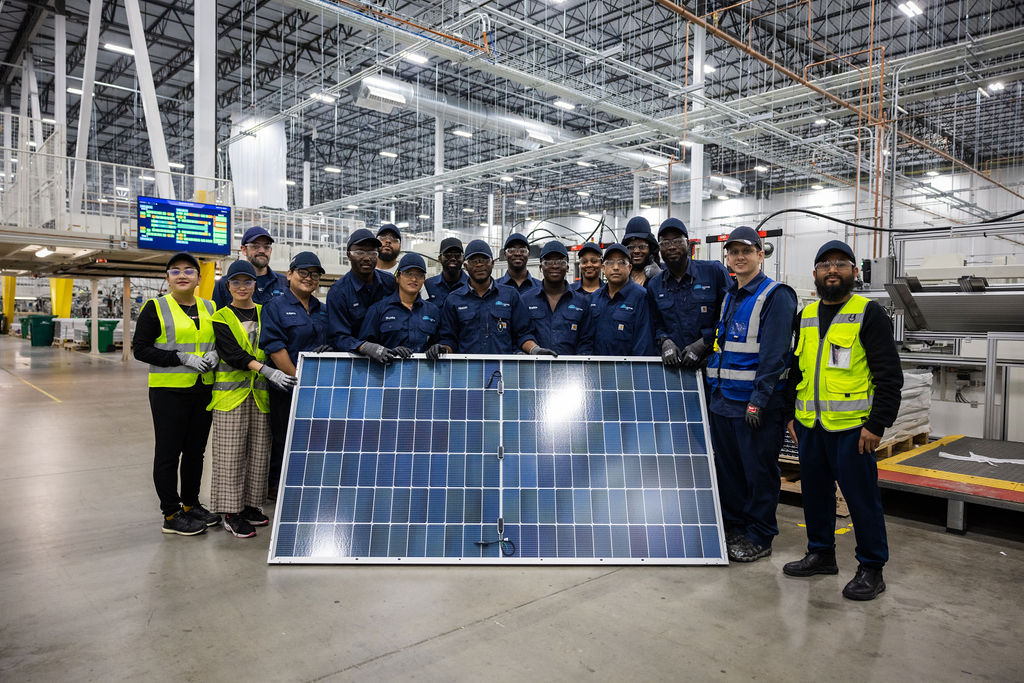Excitement About Solar Panel Installation Pennsylvania
Excitement About Solar Panel Installation Pennsylvania
Blog Article
Solar Power For Homes PA: Our Firm Specializes In The Setup And Management Of Photovoltaic Energy Systems
History and Development of Photovoltaic Panel Business
The beginning of photovoltaic panel business can be traced back to the 1800s when Alexandre Edmond Becquerel found the photovoltaic effect. Would he have imagined how his discovery would revolutionize the way we harness energy?
Early Starts

In 1954, Bell Labs developed the very first practical photovoltaic cell. This marked a significant milestone in the history of solar energy. They were at first utilized to power area satellites, however who understood this was just the start?
Evolution and Growth
- In the 1970s, an energy crisis resulted in increased interest in renewable energy sources, consisting of solar power.
- By the 1990s, improvements in innovation and increasing ecological awareness led to the development of solar panel business globally.
A New Period
As we entered the 21st century, the solar industry witnessed a rapid growth. The demand for tidy and renewable resource brought about a new era in the photovoltaic panel market.
Remarkable Realities
- The world's very first solar energy station was constructed in 1982 in Hisperia, California.
- By 2019, solar energy had actually become the world's fastest-growing source of power.
The journey of solar panel companies has been amazing, hasn't it? The future holds immense potential, with continuous improvements leading the way for a sustainable future. Can we imagine a world powered entirely by solar energy?
Progressing
Today, solar panel companies continue to innovate, pursuing more effective and affordable options. The development of solar energy has come a long method, and yet, the journey has simply started.
The Core of Solar Panel Production
Ever wonder what goes into producing those shiny, sun-loving solar panels? The procedure is as remarkable as the end product (Solar Panel Installation Pennsylvania). High-purity silicon, the main ingredient in photovoltaic panels, undergoes numerous transformations to guarantee its performance and sturdiness
From Sand to Silicon
Crystalline silicon, the foundation of most solar panels, originates from basic sand. It's a fascinating journey, isn't it? The sand goes through a high-temperature response with carbon to form silicon. However, this isn't just any silicon. The silicon used in solar panels is "solar-grade," with a pureness of 99.9999%. It's this purity that enables the panels to effectively convert sunlight into power.
Ingot Development
As soon as the silicon is pure enough, it's time to form ingots. Photo a large, round block of solid silicon. How is this attained? Through a procedure called Czochralski process, where the silicon is melted and after that gradually recrystallized. It's a sluggish dance of science, leading to a solid product that is nearly as pure as the raw silicon itself.
Slicing into Wafers
The ingots are then sliced into wafer-thin pieces, like slicing a loaf of bread. Each piece is a possible solar cell, waiting to harness the power of the sun. Did you understand that the silicon wafers are just about 200 micrometers thick? That's about half the thickness of a human hair! The procedure needs precision and patience, but the outcome is a set of wafers ready to be become solar batteries.
Developing Solar Cells
With the wafer prepared, it's time for the magic to happen. The silicon wafer is 'doped' with other aspects like phosphorous and boron to produce an internal electric field. It's this field that makes it possible for the conversion of sunshine into electricity. Complex, isn't it?
Assembly and Quality Control
Solar cells are like puzzle pieces that come together to form a photovoltaic panel. The cells are soldered together in a grid-like pattern, then covered with a protective layer of glass. The final step includes rigorous quality control checks. After all, it's important that every solar panel carries out at its peak, wouldn't you concur?
Expert Pointer
Always remember that even the most optimally manufactured solar panel can lose performance due to dirt and particles accumulation. Regular cleaning can substantially enhance your panels' performance.
Comprehending the Ecological Impact of Photovoltaic Panel Business
Ever considered the environmental footprint of a photovoltaic panel company? Green technology, such as solar, has transformed our energy landscape, but what about the behind-the-scenes effect?
The Production Process: A Double-Edged Sword
The production procedure for solar panels requires a considerable amount of energy. This process, known as 'em bodied energy', can be deemed a form of 'energy financial obligation'. It's a little like borrowing today's sunlight to power tomorrow's energy requirements. Worry not, the energy payback time is often shorter than you 'd think!
- The energy payback period for solar panels is generally 1-4 years.
- After this duration, the energy produced is basically carbon-free.

Life After Decommission
And what happens when a solar panel reaches the end of its life-span? Can it just be tossed into the trash? No, that wouldn't be extremely green, now, would it?
A practical service is recycling. While photovoltaic panel recycling is still in its infancy, it holds a world of capacity. Recycling not just keeps materials out of garbage dumps however also reduces the need for new raw materials.
Accountable Sourcing: More Than A Buzzword
Where does the silicon originated from, you ask? Unfortunately, the industry's need for silicon and unusual minerals can result in harmful mining practices. Accountable sourcing is therefore imperative to lower hazardous ecological impacts.
Decreased Carbon Emissions: The Bigger Photo
Let's not forget the larger image: solar energy considerably reduces carbon emissions. When installed, solar panels create clean, renewable resource, balancing out their initial manufacturing footprint.
In short, the ecological impact of solar panel business is a complex concern. Nevertheless, with accountable practices, the pledge of a cleaner, greener future is well within our grasp.

Financial Performance and Market Share of Photovoltaic Panel Companies
Ever wondered why some solar panel business - Best Solar Panel Company In PA beat others in the market? What sets them apart? The essential depend on their monetary performance and market share
Financial Efficiency: A Crucial Indicator
Financial efficiency plays an essential function in the success of any business. For photovoltaic panel companies, it's no different. Strong monetary efficiency enables these companies to invest in cutting-edge innovation, research study, and advancement, consequently developing top quality, efficient photovoltaic panels.
How do they achieve this? With a concentrate on expense effectiveness and strategic financial investments. Business that handle to minimize production expenses without compromising on quality tend to fare much better in the market.
Market Share: A Measure of Success
Market share, on the other hand, is a direct reflection of a business's popularity among consumers. A high market share suggests more property owners are picking their solar panels over competitors.
So, what's the secret recipe for getting a larger market share? It comes down to consumer complete satisfaction and brand track record. Companies that prioritize consumer requirements and maintain a favorable brand image are more likely to record a larger share of the market.
- Consumer Satisfaction: Photovoltaic panel business that deliver reliable items and exceptional client service tend to have greater consumer fulfillment rates.
- Brand Track record: A strong brand credibility is developed over time through consistent delivery of quality product or services.
Financial Efficiency and Market Share: The Symbiotic Relationship
Remarkably, the relationship between monetary efficiency and market share is not one-sided. They feed off each other. A strong financial efficiency can click here increase a business's market share, while a high market share can improve financial efficiency.
As a photovoltaic panel company, stabilizing these two elements is essential for long-lasting success. A company that neglects either of them might find it difficult to keep its position in the competitive solar industry.
The Takeaway
So, what does all this mean for you? Whether you're a homeowner aiming to install solar panels or a financier considering the solar industry, comprehending the financial efficiency and market share of solar panel companies is necessary. They are essential indications of a business's health and potential for future development.
Report this page